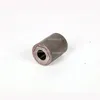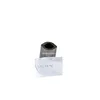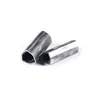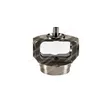Tubes are versatile cylindrical components used across various industries, from construction and manufacturing to medical and scientific applications. Designed for durability and efficiency, Tubes offer excellent performance in conveying fluids, gases, or providing structural support. In this comprehensive guide, we detail the product parameters, specifications, and answer common questions to help you make an informed decision.
Our Tubes are engineered with precision, using high-quality materials to ensure longevity and reliability. Below, we list the key parameters in a detailed format for clarity.
| Type | Outer Diameter (mm) | Inner Diameter (mm) | Wall Thickness (mm) | Length (m) |
|---|---|---|---|---|
| Stainless Steel | 10 - 500 | 8 - 480 | 1 - 10 | 1 - 12 |
| Copper | 6 - 100 | 4 - 95 | 1 - 5 | 1 - 6 |
| Plastic (PVC) | 5 - 200 | 4 - 190 | 0.5 - 10 | 1 - 6 |
| Glass | 5 - 50 | 4 - 45 | 0.5 - 5 | 0.5 - 2 |
Here are some frequently asked questions to address common queries and provide detailed insights.
What are the main applications of Tubes?
Tubes are used in a wide range of applications, including plumbing systems for water and gas transport, HVAC for air conditioning, industrial machinery for fluid conveyance, medical devices for sterile liquid transfer, and laboratory equipment for experiments. Their versatility makes them essential in sectors like construction, automotive, and healthcare.
How do I choose the right type of Tube for my project?
Selecting the appropriate Tube depends on factors such as the environment (e.g., corrosive or high-temperature), the fluid or gas being conveyed, pressure requirements, and budget. For instance, stainless steel Tubes are best for corrosive conditions, while copper is ideal for thermal applications. Always consult technical datasheets and consider consulting with an engineer for specific needs.
Are Tubes customizable in terms of size and shape?
Yes, many manufacturers offer customization options for Tubes, including non-standard diameters, lengths, bends, and specialized coatings. Custom orders may require minimum quantities and longer lead times, but they ensure a perfect fit for unique applications. Provide detailed specifications to suppliers for accurate quotes.
What maintenance is required for Tubes?
Maintenance varies by material. Stainless steel and copper Tubes may require periodic cleaning to prevent corrosion or scaling, especially in hard water areas. Plastic Tubes should be inspected for cracks or UV degradation if used outdoors. Regular checks for leaks, pressure tests, and following manufacturer guidelines can extend the lifespan of Tubes significantly.
Can Tubes be recycled or disposed of safely?
Most Tubes are recyclable. Metal Tubes like stainless steel and copper have high recycling rates and can be melted down for reuse. Plastic Tubes, depending on the type (e.g., PVC is recyclable but may require special handling), should be disposed of according to local regulations to minimize environmental impact. Always check with recycling facilities for specific guidelines.





